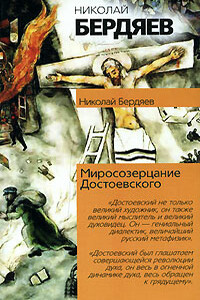[473] Paulos, John Allen. Innumeracy. (New York: Hill and Wang, 1988.)
[474] Popper, K. R. The Open Society and Its Enemies, Vol. I. (London: Routledge and Kegan Paul, 1962.)
[475] Powers, Richard Gid. Secrecy and Power: The Life of J. Edgar Hoover. (New York: Free Press, 1987.)
[476] Scott, D. R. The Cultural Significance of Accounting. (Columbia, Mo.: Lucas Brothers, n.d)
[477] Singer, Kurt. Mirror, Sword and Jewel. (Tokyo: Kodansha International, 1973.)
[478] Sowell, Thomas. Knowledge and Decisions. (New York: Basic Books, 1980.)
[479] Strehlow, T.G.H. Songs of Central Australia. (Sydney: Angus and Rubertson, 1971.)
[480] Swetz, Frank J. Capitalism and Arithmetic. (La Salle, I 11.: Open Court, 1987.)
[481] Taylor, Stanley. Conceptions of Institutions and the Theory of Knowledge. (New Brunswick, N.J.: Transaction, 1989.)
[482] Tefft, Stanton K. Secrecy: A Cross-Cultura! Perspective. (New York: Human Sciences Press, 1980.)
[483] Van den Berg, Jan Hendrik. Medical Power and Medical Ethics. (New York: W. W. Norton, 1978.)
[484] Whitehead, Alfred North. The Function of Reason. ( Boston : Beacon Press, 1958.)
КОМПЬЮТЕРЫ И КОММУНИКАЦИИ
[485] Acco, Alain, and Edmond Zuchelli. La peste informatique. (Paris: Éditions Plume, 1989.)
[486] Arnold, Erik, and Ken Guy. Parallel Convergence: National Strategies in Information Technology. (London: Frances Pinter, 1986.)
[487] Ashby, W. Ross. Design for a Brain. (London: Chapman and Hall, 1978.)
[488] Berlin, Isaiah. Against the Current. (New York: Viking Press, 1955.)
[489] Berlo, David K. The Process of Communication. (New York: Holt, Rinehart and Winston, 1960.)
[490] Cherry, Colin. World Communication: Threat or Promise? (London: Wiley-Interscience, 1971.)
[491] Civikly, Jean M. Messages. (New York: Random House, 1974.)
[492] Duncan, Hugh Dalziel. Communication and Social Order. (London: Oxford University Press, 1962.)
[493] Goodman, Danny. The Complete HyperCard Handbook. (New York: Bantam Books, 1987.)
[494] Goulden, Joseph C. Monopoly. (New York: Pocket Books, 1970.)
[495] Hemphill, Charles F., Jr., and Robert D. Hemphill. Security Safeguards for the Computer. (New York: AMA Management Briefing, 1979.)
[496] Johnson, Douglas W. Computer Ethics. (Elgin, I11.: Brethren Press, 1984.)
[497] Kaligo, Al, Lou Baumbach, and Joe Garzinsky. Telecommunications Management: A Practical Approach. (New York: AMA Management Briefing, 1984.)
[498] Kitahara, Yasusada. Information Network System. (London: Heinemann Educational Books, 1983.)
[499] Landau, Robert M. Information Resources Management. (New York: AMA Management Briefing, 1980.)
[500] Levy, Steven. Hackers. (New York: Dell, 1984.)
[501] Marchand, Marie. The Minitel Saga. (Paris: Larousse, 1988.)
[502] McLuhan, Marshall, and Bruce R. Powers. The Global Village. (New York: Oxford University Press, 1989.)
[503] Mortensen, C. David. Communication. (New York: McGraw-Hill, 1972.)
[504] Pool, Ithiel de Sola. Technologies of Freedom. (Cambridge, Mass.: Belknap Press of Harvard University Press, 1983.)
[505] Poppel, Harvey L., and Bernard Goldstein. Information Technology. (New York: McGraw-Hill, 1987.)
[506] Shannon, Claude, and Warren Weaver. The Mathematical Theory of Communication. (Urbana: University of Illinois Press, 1949.)
[507] Smith, Alfred G., ed. Communication and Culture. (New York: Holt, Rinehart and Winston, 1966.)
[508] Spacks, Patricia Meyer. Gossip. (Chicago: University of Chicago Press, 1985.)
[509] Strassman, Paul A. Information Payoff. (New York: Free Press, 1985.)
[510] Tarde, Gabriel. On Communication and Social Influence. (Chicago: University of Chicago Press, 1969.)
[511] Wilcox, A. M., M. G. Slade, and P. A. Ramsdale. Command Control and Communications. (New York: Brassey's Defense Publishers, 1983.)
[512] Wilmot, William W., and John R. Wenburg. Commumcational Involvement: Personal Perspectives. (New York: John Wiley and Sons, 1974.)
[513] Winograd, Terry, and Fernando Flores. Understanding Computers and Cognition. (Reading, Mass.: Addison-Wesley, 1986.)







